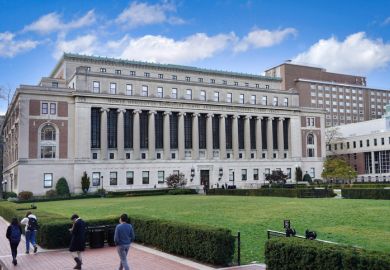The universities and science minister told a conference in London that the coalition was currently consulting the financial services industry over the sale of income-contingent student loans, which were introduced by prime minister Tony Blair in 2006. Such a sale could bring in around £12 billion over a five-year period, starting in the next two years, Mr Willetts said.
“The [student loan book] sale that happened a month or two back was the last remaining sale of the old mortgage-style loan book, which was a far inferior model for financing higher education,” he said in response to claims that the government had failed to reap the maximum return from that particular transaction.
The income-contingent loans were “completely different”, he said, and would bring in “more than enough to finance any likely increase in student numbers”.
Mr Willetts told delegates at the Study UK Annual Conference 2013 that there had been a “misinterpretation” of the sale of the student loan book, with many in the sector wrongly believing it to be “a one-off selling of the family silver”.
“Actually, the new assets of each year’s graduate repayments are accumulating. It would perfectly possible, if successive government’s wished, to continue with annual programmes of sale of the graduate debt,” he said.
Elsewhere in his address, the minister said that despite the abolition of the student cap, number controls would remain in place for alternative providers that offer “higher risk provision” and fail to meet “high standards”.
“The challenge for us with alternative providers has simply been that the surge in spending on fee loans and maintenance loans has presented us with a significant fiscal challenge,” he said.
“The number of students [accessing such support] more than doubled between 2011-12 and 2012-13, and the plans for 2013-14 were galloping ahead despite us signalling that there was some need for prudence because of expenditure pressures.”
He said that most of this “unplanned growth” had come from a small number of providers that had since been asked to “desist from recruiting further students this year”.
According to Mr Willetts, alternative providers will be able to apply for exemption for student number controls from 2015-16, but to be successful they will have to prove that they are not “high risk”. The ability to offer validated degrees was one of the criteria that Mr Willetts suggested might be used to judge the reputation of alternative providers.
“I don’t like number controls either in alternative providers or in mainstream [education],” he said. “But the level of budgetary pressure we were facing as a result of very rapid growth in alternative providers made it very difficult for us.”
He added: “I still…look forward to a day when there is a single regime for all providers, regardless of their historic origins.”
Register to continue
Why register?
- Registration is free and only takes a moment
- Once registered, you can read 3 articles a month
- Sign up for our newsletter
Subscribe
Or subscribe for unlimited access to:
- Unlimited access to news, views, insights & reviews
- Digital editions
- Digital access to THE’s university and college rankings analysis
Already registered or a current subscriber? Login




